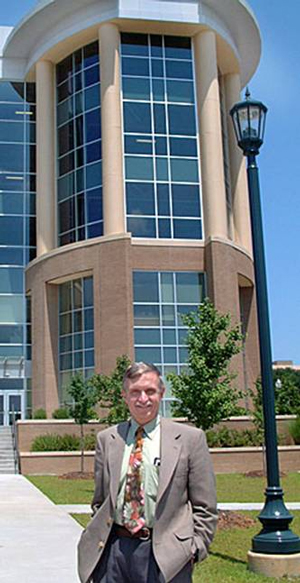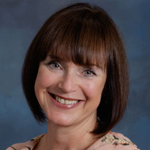Center is helping residents make lifestyle changes to cut cancer rates
June 2, 2009

Dr. James Hebert, director of the S.C. Statewide Cancer Prevention and Control Program, is inviting the public to the grand opening of the CPCP Headquarters in the Discovery I Building, 915 Greene Street.
The S.C. Statewide Cancer Prevention and Control Program opens its new headquarters with special events on Friday and Saturday, marking a milestone in the state's struggle with the largest cancer disparities in the United States and, in some instances, in the world.
CPCP Director Dr. James Hébert said the opening celebration of its new location at 915 Greene Street (across from the Colonial Life Arena) in USC's Innovista will be free and open to the public.
"As careful stewards of public funding (though none of these events are paid from public coffers), we feel a special obligation to open the doors to help the public we are here to serve experience the world in a new way. On Saturday, events include cooking demonstrations and many different forms of entertainment (including music and a visit by Cocky!)," said Hébert.
In an op-ed article published in The State on Tuesday, Hébert said the CPCP is working in a state where:
"African-Americans have the highest rate of one of the most deadly forms of cancer of the esophagus (squamous cell) in the nation. It is about seven times higher than what is seen in European Americans, despite the fact that the rate of cigarette smoking (this cancer’s major risk factor) in African-Americans is much lower.
"The prostate cancer incidence rate among African-Americans is the highest in the nation (and about 80 percent higher than that of whites), and mortality is the highest in the world. Similarly, the death rate among African-American women diagnosed with breast cancer is the highest in the nation. Indeed, it would be hard to find an example that does not disfavor African-Americans.
"In its short history, the Cancer Prevention and Control Program has made good progress in describing the "cancer problem" in terms of both the scale and diversity of the kinds of cancers we see and where they are located within our beautiful, if somewhat beleaguered, state.
"This has entailed working with many other partners, including those in state government, such as the best-in-the-country S.C. Central Cancer Registry. The August 2006 special issue of the Journal of the South Carolina Medical Association was unprecedented in providing a graphical description of cancer in our state and for allowing the voices of the community to be heard in a peer-reviewed medical journal.
"On the front cover of the current (1 June 2009) issue of Cancer is featured our article on mapping cancer mortality rates within our state — the first of its kind for anyplace in the world. These are things about which South Carolinians can be justifiably proud. Indeed, these careful descriptions have become models nationally.
"It is not enough, though, just to describe the problem. We are not ivory-tower academicians. So, we also have begun to address some of the underlying causes related to the larger environment in which we all live, and the various lifestyle choices we all make.
"Our goal is to identify things that individuals, or many of us working collectively, can do to reduce the rates of many different types of cancer and the destruction and suffering they cause. Many of the things that we have found to reduce rates of cancer also will help individuals, families and entire communities control other major killers and causes of disability, such as diabetes, heart disease and stroke.
"Much of our work focuses on diet and physical activity.
"One premise is that fundamental changes are needed if we are going to make a real, durable difference in terms of lowering the rates of cancer and other deadly diseases. We also believe that these changes expand how people see, taste, smell and otherwise experience the world. Indeed, the universe to which people are introduced is bigger than what they had known before.
"Another premise is that we cannot do this with a heavy heart; so, it really needs to be fun. This does not mean that it is not hard work. When one is confronted with a life-threatening illness, or whole communities whose very existence is threatened, it is absolutely essential to take it seriously. But most major changes that have occurred in the world have been made by people who understand the gravity of the problem they are confronting, while at the same time greeting the challenges with both resolve and great senses of humor."
- For more information about the program or Saturday's events, go to cpcp.sph.sc.edu.



_01.jpg)
_02.jpg)
